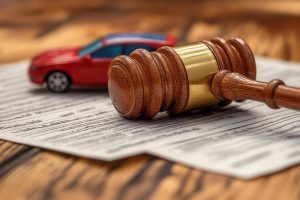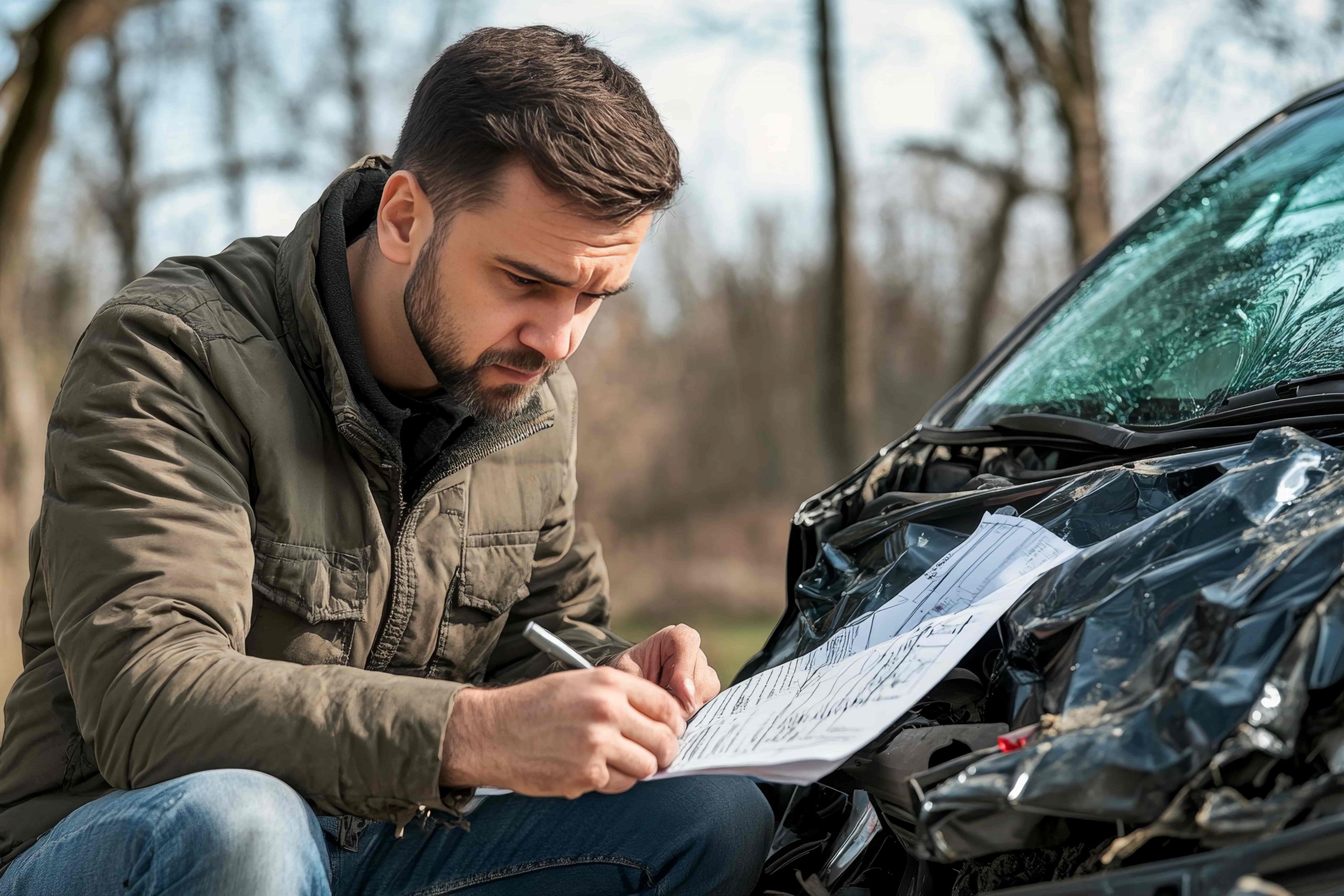Your car accident settlement amount depends on your injuries, lost wages, medical costs, pain and suffering, and who’s at fault. Most settlements range from $5,000 to $50,000, but severe injury cases can exceed $100,000. Every case is different—here’s how to estimate yours.
You’ve been in a car accident and now you’re wondering: How much is my settlement worth?
People often feel overwhelmed trying to understand if their case is “worth” a few thousand—or much more.
In this guide, we’ll break down everything that goes into calculating your potential settlement, including injuries, lost income, fault, and even the role of insurance.
We’ll also answer real questions and worries people share online—like
- What if I settle too soon and need surgery later?”
- Whether you’re just starting a claim or reviewing a settlement offer
This article will help you understand what you may be owed—and how to get it.
Average Car Accident Settlement Amounts

When people hear the word settlement, they often imagine a fixed number. But the truth is, there is no “one-size-fits-all” amount for a car accident settlement.
That said, most settlements in 2025 range between $5,000 and $50,000 for moderate injuries. For more serious cases—like broken bones, traumatic brain injuries, or long-term disability—the numbers can easily exceed $100,000, sometimes climbing into the millions depending on circumstances like fault, available insurance, and severity of harm.
The Truth About Settlement Estimates
Minor injuries, such as whiplash, neck injuries, or back sprains, typically yield lower offers, especially if medical treatment was brief or if liability was unclear. Unfortunately, some victims with “soft-tissue” damage feel their cases are undervalued, often because insurance companies are quick to dismiss these injuries as minor, even when they have long-term effects.
Many people turn to online settlement calculators hoping for a quick estimate.
Be careful.
These tools often produce lowball estimates, primarily to capture your contact information. They can’t factor in nuances like emotional pain, lost future income, or comparative negligence.
As one personal injury attorney put it: “A fair offer covers everything you’ve lost—not just what’s easy to measure.” But what’s “fair” depends entirely on your unique case, and that’s why you need to understand the full picture.
Our Articles On Average Settlements For Specific Injuries
- Average Car Accident Settlement For Neck & Back Injuries In Florida
- Average Car Accident Settlement For Concussions In Florida
- Average Car Accident Settlement For Pain & Suffering In Florida
- Average Car Accident Settlement For TBI In Florida
- Average Car Accident Settlement For Loss Of Cervical Lordosis In Florida
- Average Car Accident Settlement For Cervical Radiculopathy In Florida
- Average Car Accident Settlement For Herniated Disc In Florida
- Average Settlment For Spinal Fusion In Florida
- Average Car Accident Settlement For TMJ In Florida
- Average Car Accident Settlement For Scoliosis In Florida
Why Average Numbers Can Mislead You
Average settlement amounts are just that, averages. Averages can be misleading. For instance, one catastrophic case with a $1 million payout could drastically inflate the “average” across dozens of smaller claims.
In truth, your case worth depends on your injuries, financial losses, and how strong your evidence is. It also hinges on who’s at fault, what kind of insurance is available, and whether your case ends in litigation or settles outside of court.
The most common mistake accident victims make is comparing their personal injury claim to someone else’s. But the real value of your case isn’t just about broken bones or vehicle damage, it’s about how the accident has affected your life personally.
If you’re unsure where your case falls on the spectrum, Applebaum Accident Group can connect you with a trusted personal injury attorney who can evaluate your car accident case and provide clarity on what’s fair for you.
Factors That Determine Your Settlement Value
Every car accident case is different, but most personal injury settlements are shaped by a combination of tangible losses and legal nuances. Here are the seven primary factors that influence settlement value:
Medical Bills (Past + Future)
The foundation of any settlement is your medical treatment history—including ER visits, surgeries, rehab, prescriptions, and future care. Accurate documentation of medical expenses to recovering full financial compensation.
Lost Wages and Reduced Earning Capacity
If your injuries kept you from working—or will in the future—those lost earnings should be fully compensated. This includes full-time jobs, part-time roles, and even future lost income if your ability to work is permanently impacted.
Pain and Suffering (Using a Multiplier Formula)
Non-economic damages, like emotional pain, physical discomfort, and loss of enjoyment of life—are calculated using a multiplier (usually between 1.5 to 5×) applied to your economic damages. More severe injuries = a higher multiplier.
Property Damage (Car Repairs or Replacement)
Vehicle damage is usually straightforward. If your car is totaled, the fair market value becomes part of the claim. Repairs, rental car fees, and other costs also factor into your insurance claim.
Insurance Policy Limits
Even if your case is worth more, your settlement offer is often limited by the at-fault party’s insurance policy limits. If damages exceed coverage, you may need to explore underinsured motorist coverage or file a personal injury lawsuit.
Helpful Resource -> What Happens When Car Accident Claim Exceeds Insurance Limits In Florida
Fault and Comparative Negligence Rules
If you were partially at fault, your financial recovery might be reduced. Under comparative negligence rules, being 20% responsible means your total damages are reduced by 20%.
State-Specific Laws (e.g., Florida’s No-Fault Rules)
In Florida, PIP (Personal Injury Protection) only covers medical expenses and lost wages, not pain and suffering. You’ll need to prove a serious injury or Emergency Medical Condition (EMC) to pursue a broader personal injury claim.
What About Mental Health Treatment Costs?
Many car accident victims quietly suffer from anxiety, PTSD, or depression, yet non-economic damages like these are often downplayed. In reality, therapy sessions, psychiatric care, and even prescriptions for anxiety can—and should—be included in your claim under pain and suffering.
To ensure these emotional and psychological injuries are recognized, make sure your providers document all mental health treatments and their connection to the crash.
Can You Get Compensation for Gig Work or Side Hustles?
Absolutely—but you’ll need strong documentation. Many accident victims today rely on gig economy income from jobs like Uber, DoorDash, or freelance work. That income counts as lost wages, just like any traditional paycheck.
So, if you missed two months of deliveries or client work, that lost revenue can be included in your economic damages. Just be ready to show bank statements, invoices, or 1099s to prove it.
What If Your Injuries Get Worse Later?
One of the biggest mistakes accident victims make is settling before they’ve reached Maximum Medical Improvement (MMI). MMI means you’ve healed as much as expected—only then can your future damages be accurately estimated.
Settling too soon can leave you without coverage for future surgeries, therapy, or complications. And unfortunately, once you accept a settlement, you can’t reopen your case—even if your condition worsens.
If you’re unsure whether to settle or wait, speak with a professional. At Applebaum Accident Group, we’ve seen too many victims shortchanged because they didn’t have the right guidance when it mattered most.
Mistakes That Can Hurt Your Payout

When you’re pursuing a car accident settlement, even small missteps can reduce your settlement value or hurt your case entirely. There are four of the most common ways victims unknowingly sabotage their own financial compensation.
Delaying Medical Care
In states like Florida, you must seek medical treatment within 14 days of the crash to qualify for PIP benefits. Waiting too long can not only disqualify you from coverage—it can also give the insurance company an excuse to downplay the severity of your injuries.
Posting on Social Media
Insurance companies often monitor your social media accounts. A single post showing you active or smiling—even if you’re in pain off-camera—can be used to challenge your claim for pain and suffering or physical impairment.
Settling Too Soon
If you accept a settlement offer before completing treatment or reaching Maximum Medical Improvement (MMI), you risk getting locked into a payout that doesn’t cover future medical treatments or complications.
Gaps in Medical Records
Missing appointments or having inconsistent documentation can make it appear like your injuries weren’t serious. Keep detailed records of all treatments, medications, and follow-ups to avoid undermining your own personal injury claim.
How Partial Fault Reduces Compensation
If you were partly responsible for the accident, that affects how much you can recover. This is where comparative negligence laws come into play.
Let’s say the total value of your case is $100,000—but you were found to be 20% at fault for the accident. That means your financial compensation would be reduced by 20%, lowering your settlement to $80,000.
So when people ask, “I was partially at fault—what does that mean for my payout?”—the answer depends on your state’s laws and how fault is divided. Even in shared-fault scenarios, you still may be entitled to significant compensation.
This is exactly why having a knowledgeable attorney in your corner matters. Applebaum Accident Group connects you with legal professionals who know how to defend your position and preserve the value of your case, even when liability is contested.
How Insurance Companies Calculate Your Offer
It’s no secret—insurance companies don’t work for you. Their goal is to protect profits by paying out as little as possible. Here’s how they do it:
Automated Software Tools (e.g., Colossus)
Many insurers use internal software to evaluate personal injury settlements. These tools rely on strict inputs and often undervalue non-economic damages like emotional pain, mental health impacts, and lifestyle changes.
Fast, Low Offers
You may receive a settlement offer just days after your accident. This tactic is designed to catch you off guard before you understand the full scope of your injuries.
Recorded Statements & Surveillance
Adjusters may ask leading questions or request recorded statements that can be twisted later. Some insurers even surveil claimants, hoping to catch something that contradicts the injury claim.
Remember: if the first offer feels low, it probably is.
What You Can Do to Push Back
You don’t need to be an expert in personal injury law to advocate for a fair outcome—you just need the right tools and support:
Ask for an Itemized Damage Breakdown
Don’t just accept a lump-sum offer. Ask how they calculated your settlement amount, line by line. This alone can reveal gaps or undervaluation of your damages.
Keep All Receipts, Photos & Documentation
Photos of your injuries, vehicle damage, and even journals documenting your recovery can increase your case value during settlement negotiations.
Get Legal Support (Even If You’re Undecided on a Lawsuit)
A skilled personal injury attorney can review your insurance claim, challenge unfair valuations, and negotiate aggressively on your behalf. And with services like Applebaum Accident Group, you can get connected with trusted attorneys for a free consultation—so you’re not navigating this alone.
When to Wait—and When to Settle
One of the biggest fears people have is settling too soon—and for good reason. Once you sign that settlement agreement, your case is closed.
Signs You’re Settling Too Early
- You haven’t finished medical treatment: Without reaching Maximum Medical Improvement (MMI), there’s no accurate way to estimate future damages or ongoing care costs.
- You feel pressured by your lawyer or insurer: If someone is rushing you into a decision “before the offer disappears,” step back. That’s a red flag.
- You haven’t reviewed all your records or liens: Medical bills, insurance liens, and third-party claims could eat into your payout. Make sure you know what you’ll actually walk away with.
Signs You Might Be Waiting Too Long
On the flip side, holding out too long can backfire. If any of the following apply, it may be time to move forward:
- Bills are piling up and causing financial strain
- Statute of limitations is approaching (e.g., 4 years for car accident lawsuits in Florida)
- You’re missing key medical evaluations or deadlines that could weaken your claim
Timing is everything. Don’t guess—get clarity from a professional who’s seen both sides of the equation.
Get the Info You Deserve Before Signing
No two accident cases are the same. Your Settlement Should Reflect the Full Picture
Your car accident settlement isn’t just about broken bones or damaged vehicles—it’s about how your life has changed. Maybe it’s the physical pain. Maybe it’s the therapy you never thought you’d need. Or maybe it’s just not being able to pick up your child without wincing. These are all part of your story.
So don’t accept a number based on someone else’s situation. Don’t trust a calculator to define your case worth. And definitely don’t go it alone.
Need help figuring out what your case is worth?
At Applebaum Accident Group, we specialize in helping injury victims connect with attorneys who care—not just about the outcome, but about you.
✅ Access to Florida’s Best Attorneys: We work with a network of highly skilled personal injury lawyers who specialize in car accident cases. These attorneys have a proven track record of securing maximum compensation for their clients, whether through settlements or courtroom victories.
✅ Free, No-Obligation Case Evaluation: Not sure if you need a lawyer? We’ll arrange a free consultation with an experienced attorney who will review your case and provide expert advice – with no pressure or commitment.
✅ Personalized Lawyer Matching: Every accident is different, and so is every legal case. We match you with an attorney who understands the details of your accident, injuries, and financial concerns, ensuring the best legal strategy for your situation.
✅ Fast, Hassle-Free Process: Don’t waste hours researching law firms. We do the work for you, finding trusted, experienced attorneys so you can focus on your recovery.
Take the First Step Toward Justice
If you’ve been injured in a car accident, don’t wait to seek legal help. Call Applebaum Accident Group today, and we’ll connect you with the right attorney to fight for your rights.
📞 855-225-5728 | Request Your Free Consultation Now
With Applebaum Accident Group, you get support, expertise, and access to Florida’s best attorneys – without the stress. Let us help you find the legal representation you deserve.





